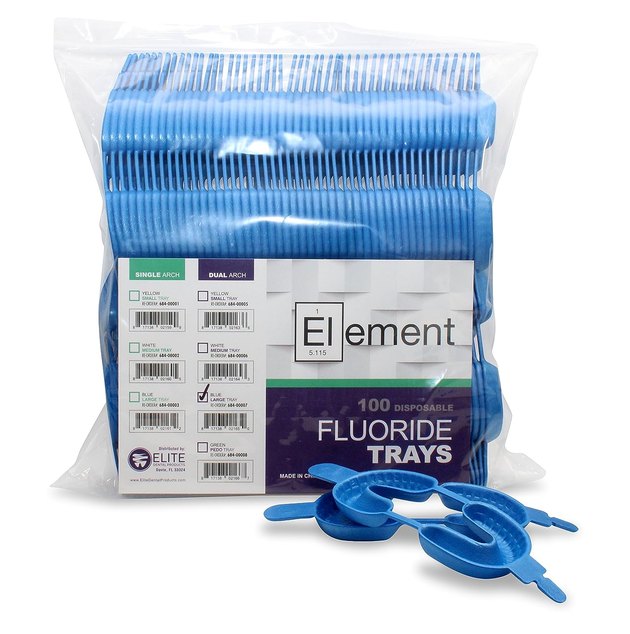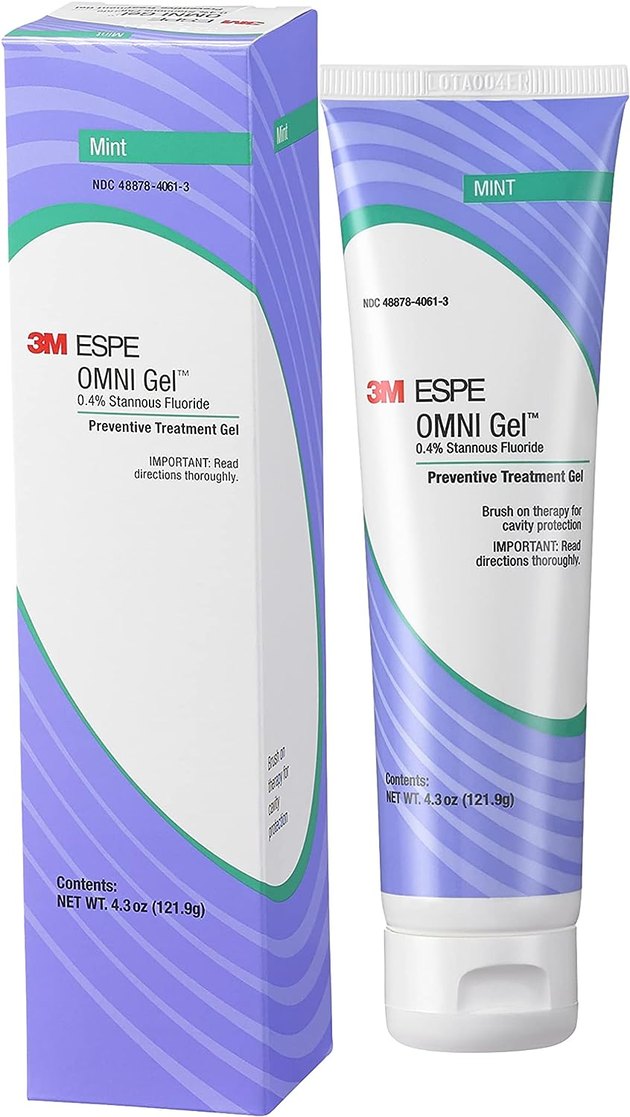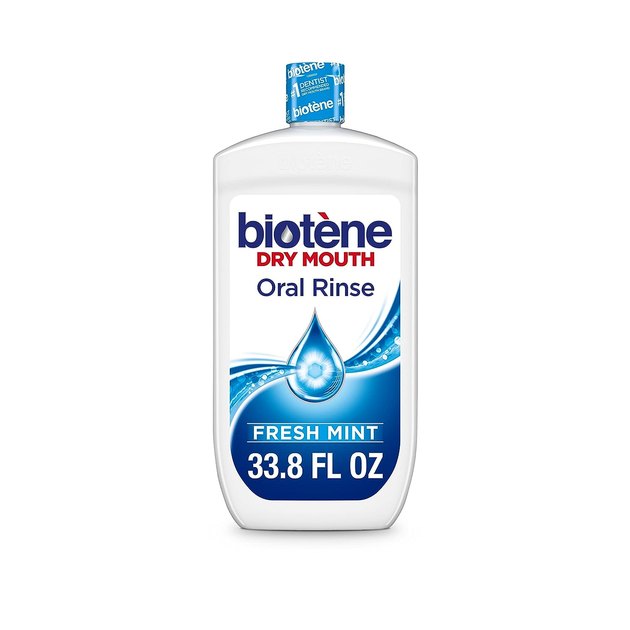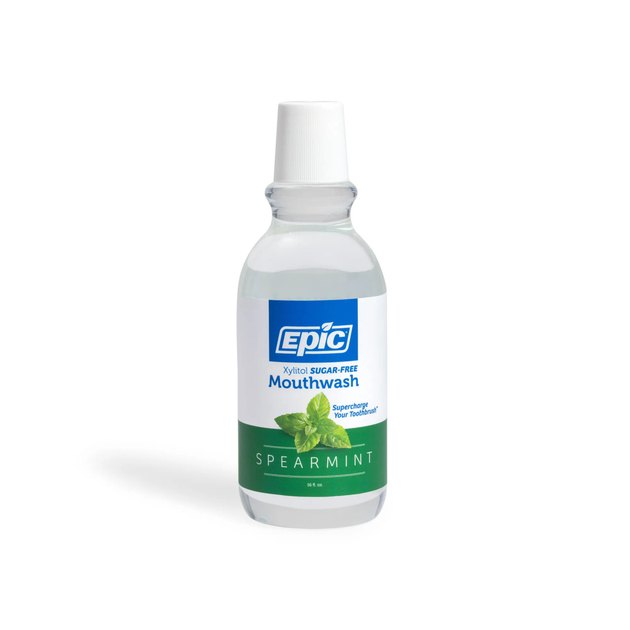
If you are one of the 4 million Americans who lives with Sjögren's syndrome, you know well the sensation of a parched, dry mouth that can also make chewing and swallowing difficult.
But the condition can affect your dental health, too, Matthew Messina, DDS, clinic director of Ohio State Upper Arlington Dentistry and a spokesperson for the American Dental Association, tells LIVESTRONG.com.
Video of the Day
Video of the Day
Here's how Sjögren's affects the mouth, along with dentist-approved ways to keep your mouth healthy.
How Sjögren’s Affects Your Oral Health
"Sjögren's syndrome is an autoimmune disease, so your body fights itself and beats up the lining of glands in your body," Dr. Messina says.
This includes the salivary glands, which provide saliva to the mouth. It's what causes dry mouth in Sjögren's syndrome (the hallmark symptom of the condition).
And a dry mouth can cause all sorts of dental problems, Alexa Martin, DMD, an endodontist in Beverly Hills, California, tells LIVESTRONG.com.
1. Higher Risk of Cavities and Gum Disease
Because saliva normally helps wash away food debris that sticks to your teeth, a dry mouth raises your risk for developing not only cavities, but also gum disease, Dr. Martin points out.
"Saliva is also rich in a substance called calcium phosphate, which helps to build your teeth back up," she points out.
There may also be differences in saliva among people with Sjögren's syndrome that make them more likely to develop cavities. An August 2019 study in Oral Medicine found that people with the condition had significantly more cavities than people whose dry mouth was due to another cause.
2. Mouth Sores and Mouth Pain
Sjörgen's can also lead to mouth sores, and mouth pain in general.
"Your saliva not only protects your oral health, it also has natural opioid pain medications in it," Dr. Martin says.
As a result, if you accidentally bite your tongue or cheek — as we all do occasionally — it can become even more painful, Dr. Messina says. Also, anytime you eat or drink something acidic, like fruit juice or tomato sauce, it can be uncomfortable.
3. Higher Risk of Mouth Infections
Other oral symptoms of Sjogren's syndrome include mouth or bacterial infections. "Since there's such little saliva in your mouth, it creates an environment where yeast and bacteria can thrive," Dr. Martin says.
These can also cause painful mouth sores.
4. Burning Mouth Syndrome
People with Sjögren's also seem more prone to burning mouth syndrome, or moderate to severe mouth burning, according to the Johns Hopkins Jerome L. Green Sjögren's Center.
It often begins in late morning, builds to a peak in the evening, and improves at night. "When we look at their mouth and throat, they're often dry and red," Dr. Martin says.
5. Tongue Changes
Sjögren's can also affect your tongue by leaving it dry and fissured. This can make your mouth feel even more chalky and may make it difficult for you to speak and swallow, Dr. Messina says.
You may notice your tongue sticks to the roof of your mouth and that it's hard to eat dry food like crackers.
Tips to Keep Your Mouth Healthy With Sjögren's
1. Sip Water Frequently
When it comes to Sjögren's syndrome and dental health, water is your best friend.
"I encourage all my patients with Sjögren's syndrome to always carry a bottle of water around with them to keep their mouth moist," Dr. Messina says. "The drier it is, the higher their risk of tooth decay and gum disease."
The Sjogren's Foundation recommends you sip small amounts of water frequently during the day.
Just don't drink too much — it can reduce the mucus film in your mouth and worsen symptoms.
Stick to good old H2O as much as you can. Caffeinated drinks will leave you more parched, and acidic beverages like carbonated and sports replenishment drinks or fruit juices can irritate your mouth.
2. Chew Sugar-Free Gum
It will increase the saliva in your mouth, Dr. Martin says.
You can also suck sugar-free hard candies. Look for ones that contain Xylitol, which has been shown to help prevent tooth decay.
3. Run a Humidifier
Keep a humidifier in your room. It will increase air humidity, which in turn will help keep your mouth moist, according to the Sjogren's Foundation.
4. Tweak Your Tooth-Cleaning Regimen
"The best way to fight back is to improve your oral hygiene," Dr. Messina says.
He recommends using an electric toothbrush. These tend to be more effective at removing plaque and reducing the risk of gum disease than manual ones, according to a May 2019 study in the Journal of Clinical Periodontology.
In addition to daily flossing, he also suggests you use a water flosser, a device that sends a stream of pulsating water to rinse out plaque between your teeth.
5. Focus on Fluoride
You should brush your teeth with a toothpaste that contains fluoride at least twice a day, Dr. Messina says.
But he also recommends you use a fluoride carrier, or tray, to apply fluoride gel to your teeth. These can be found over-the-counter, or you can get a custom-made one from your dentist's office.
"It's applied for five to 10 minutes at night like you would a tooth-whitening tray," he explains. "The fluoride helps strengthen tooth enamel, to make it more resistant to acid."
6. Use an Alcohol-Free Mouthwash
An alcohol-free mouthwash may temporarily help relieve symptoms of dry mouth.
The Sjögren's Foundation recommends Biotene Alcohol-Free Dry Mouth Mouthwash and Epic's Xylitol Mouthwash, among others.
7. Ask Your Doctor or Dentist About Prescription Products
There are also some prescription products that can help relieve dry mouth, according to the Sjögren's Foundation. They include:
- Salagen and Evoxac: These are pills that increase the amount of saliva in your mouth. You take them once a day.
- NeutraSal: This is a calcium phosphate oral rinse that helps replace your natural saliva. You can use it as needed up to 10 times a day.
When to See a Dentist
There's no hard-and-fast rule on how frequently you should see a dentist when you have Sjögren's syndrome. But Dr. Messina recommends you go every three months.
"It will help prevent little problems, such as a minor cavity, developing quickly into big ones," he says.
Schedule an in-between trip to the dentist if you notice any of the following:
- Bleeding after brushing or flossing
- A mouth sore that doesn't clear up on its own after a week or two
- White sores on your tongue, inner cheek or roof of your mouth, which can all indicate a fungal infection, Dr. Martin says
- Tooth pain that could indicate a cavity or infection
- Oral Medicine: "Risk factors for caries development in primary Sjogren syndrome"
- Johns Hopkins Jerome L Green Sjogren's Center: "Burning Mouth Syndrome"
- Sjogren's Foundation: "Dry Mouth"
- Journal of Clinical Periodontology: "Long-term impact of powered toothbrush on oral health: 11-year cohort study"
- Sjogren's Foundation: "Understanding Sjogren's"
Is this an emergency? If you are experiencing serious medical symptoms, please see the National Library of Medicine’s list of signs you need emergency medical attention or call 911.






